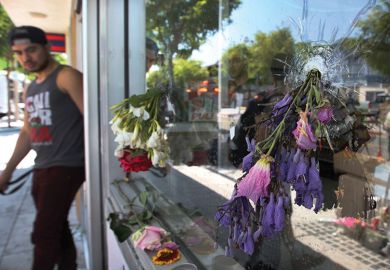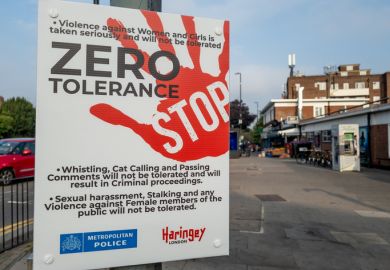#MeToo was widely heralded as a tipping point. Women, it seemed, were actually being believed about their own experiences. Following a media exposé and the bravery of women speaking out, Harvey Weinstein was jailed.
But this is one perpetrator. So how much do we really believe women as credible authors of their own experiences? Brett Kavanaugh was still appointed to the US Supreme Court despite the allegations that he sexually assaulted Christine Blasey Ford as a teenager. And many of the men identified in the immediate aftermath of the Weinstein revelations are working on their comebacks.
But the issues arising from #MeToo do not only relate to the world of celebrity. Over the years, one strand of my research related to women and their experiences within the academy. As a result, I was regularly invited to speak about this topic, and my engagements elicited some wonderful emails and conversations with women who, like me, found catharsis and comfort in realising we were not alone. I also felt that the impact went beyond women, with some very dear male colleagues putting up their hands and offering support. And, collectively, we were heard.
We made clear that a systemic sexism is embedded within the academy, and we highlighted the stark impact it had on women, causing them to question their abilities; lose confidence and become isolated.
Structurally, sexism is reinforced by the over-representation of men at senior levels. The gender pay gap stands at 15.1 per cent in favour of men, three in four UK professors are male and only 35 out of 19,285 are black and female. These data illustrate an abject failure of legal frameworks and policy agendas.
So why do these structures fail? To understand that, my work has suggested, we need to understand the cultural context in which these structures are situated and the role of culture in creating them.
The experiences of women in the academy tell a cumulative story about the nature of culture. Apart from being underpaid compared with my male counterparts, examples from my own experience also include being told that “women don’t do research”; being sexually assaulted a number of times; and being advised that to stop bullying I should attend a meeting with my male harasser and “show a bit of boob”.
We’ve seen numerous reports about the problems of sexual violence and abuse at the level of the student body. However, what seems to be missing in the discussion is what happens when the perpetrator is a member of staff. Why is it that those structures that are supposed to be in place to protect women do not work in women’s interests? It might be a bit too easy to say “it’s the patriarchy”.
And yet. We see patriarchy in action when male ranks close and men protect perpetrators of sexual harassment and assault. We see patriarchy in action when women are bullied into submission and, on occasion, forced out of their jobs. We see patriarchy in action when we fall victim to power structures that function to protect the interests of a particular type of entitled man through the positioning of women/the woman as the problem.
This, in turn, becomes a problem for women. Because how do we stop those men who assault, harass and abuse their colleagues and students if their very existence is protected by the structures that are supposed to protect everyone, irrespective of gender and race?
We are reminded by #MeToo, as by the history of feminist thinking, that women are powerful when they collectively raise their voices. Women do not have to put up with abuse, harassment or assault. Women do not have to be isolated, alone or afraid. Women are credible, reliable and authentic narrators of their own experiences.
We have to believe women, in universities as much as anywhere else. We cannot continue to protect the men who abuse our students and our daughters, our sisters and our wives, our colleagues and our friends.
Heather Savigny was professor of gender, media and politics at De Montfort University. Her book, Cultural Sexism: The Politics of Feminist Rage in the #MeToo Era, is published by Bristol University Press.
Register to continue
Why register?
- Registration is free and only takes a moment
- Once registered, you can read 3 articles a month
- Sign up for our newsletter
Subscribe
Or subscribe for unlimited access to:
- Unlimited access to news, views, insights & reviews
- Digital editions
- Digital access to THE’s university and college rankings analysis
Already registered or a current subscriber?







